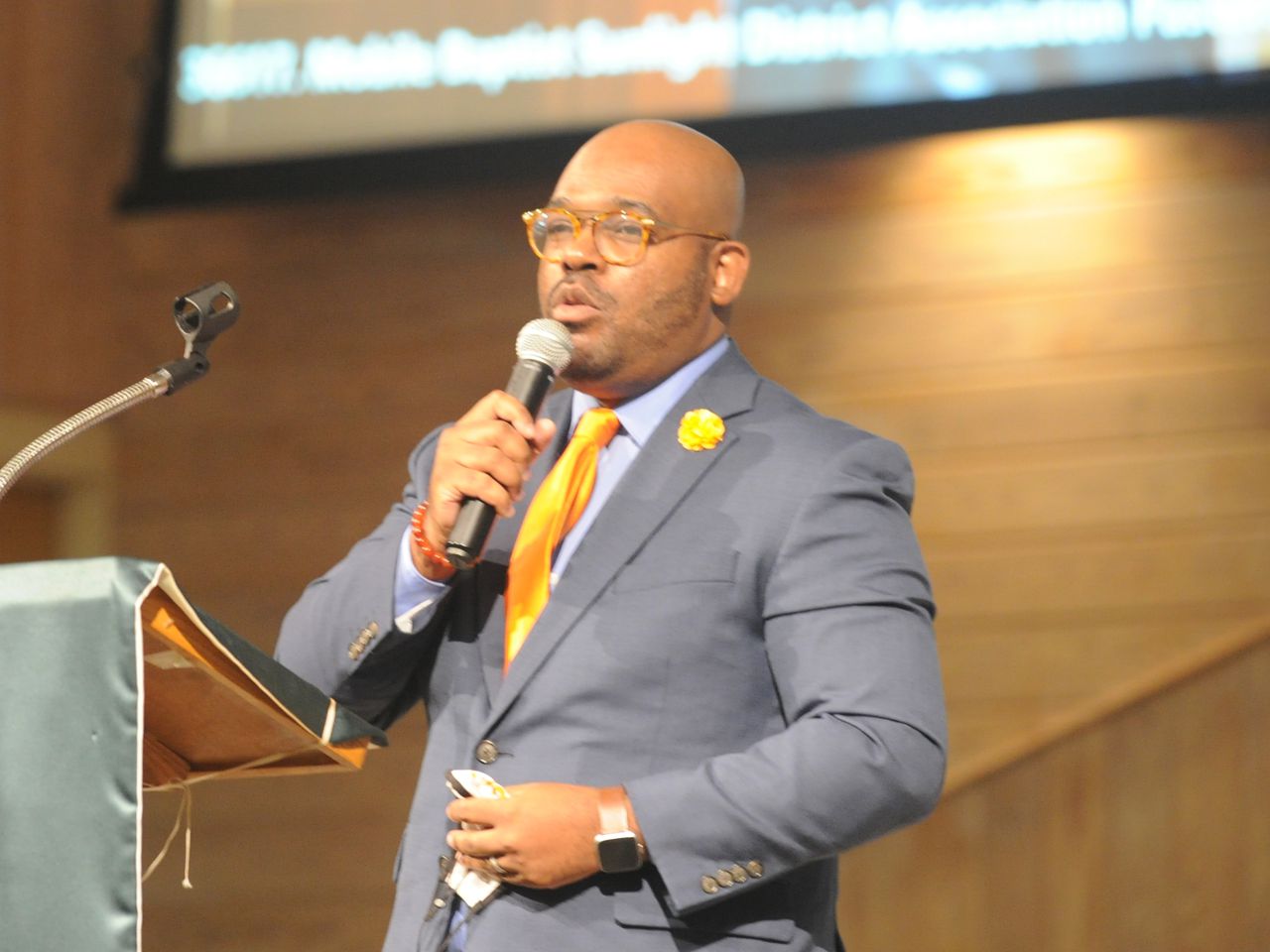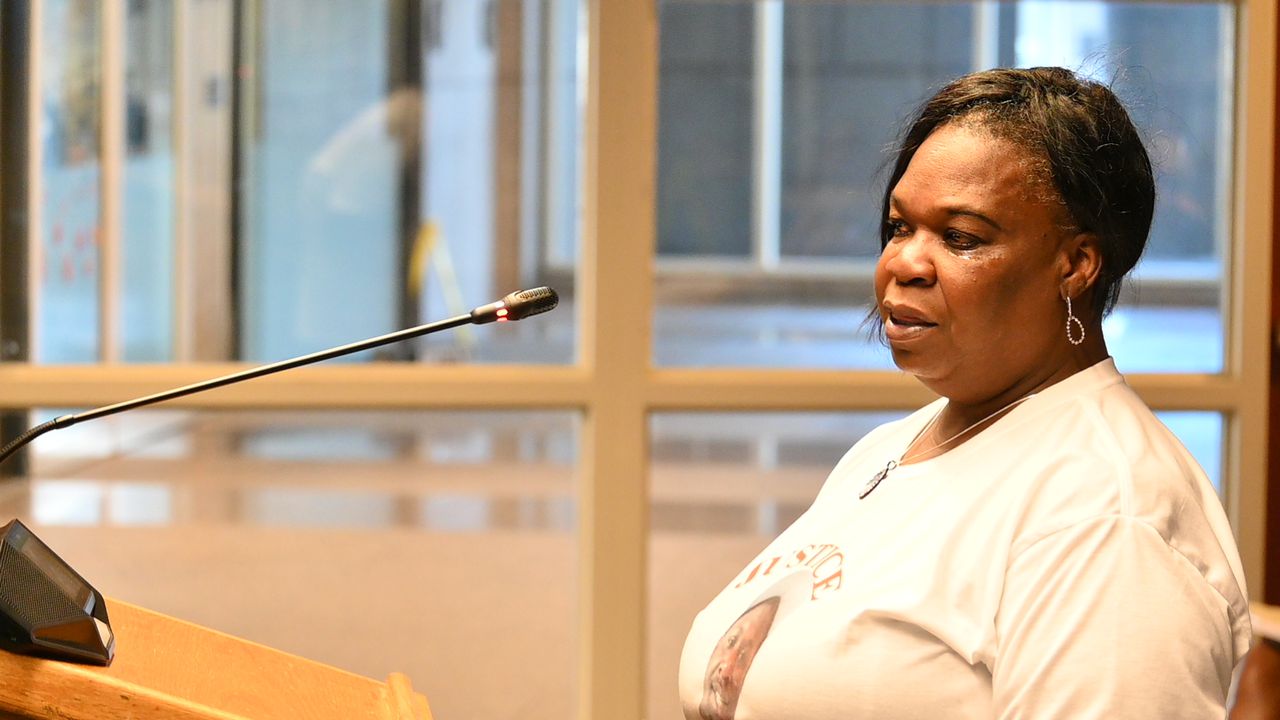Mobile police chief defends agency as calls grow for change
Mobile’s police chief is urging city officials and community leaders not to make “knee jerk” reactions to two recently released cell phone videos showing police officers engaged in violent confrontations.
The comments from Chief Paul Prine on Thursday come amid growing calls for more transparency, a focus on de-escalation training, and consideration for reforming a police-citizens advisory committee.
Related content:
Prine told AL.com that the public should approach the instances with a “calm mind” and wait for the facts in both cases to surface. Two cell phone videos, captured during different incidences within the past week, show police either punching or body slamming someone during an encounter. He has asked federal agents to investigation.
“We have to be reasonable and rationale and weigh the circumstances of the facts,” Prine said, while offering a defense of his agency.
“We are the only organization I am aware of in this community trying to prevent and interfere with crime, lower crime (while offering) resources in the way of mental health (support), financial resources, job placement and job training and also has a family intervention team that’s interfering with troubled kids in our school system,” Prine said. “All in an effort to level up citizens, give them a hand up rather than a handout and build trust and transparency.”
Town hall request
His comments come after the Mobile branch of the NAACP is calling for greater transparency, better de-escalation training, and for officers to placed on unpaid leave following a questionable incident. Prine said the officers placed on administrative leave or administrative duty – which is essentially a desk job – will continue receiving their pay.
Robert Clopton, head of the Mobile NAACP, is also calling for a town hall meeting similar to one that his group conducted in 2020, following widespread protests after the killing of George Floyd – a Black man – by a white police officer in Minneapolis.
Clopton noted that town hall meeting held three years ago included the heads of the region’s law enforcement agencies who are no longer serving in their positions. Since that meeting, Prine was appointed police chief in 2021; Paul Burch was elected Mobile County Sheriff last year; and Keith Blackwood was elected District Attorney last year. Sean Costello was appointed U.S. Attorney for the Southern District of Alabama in 2021.
The city is also in the process of appointing a new executive director of public safety.
“All of that has changed,” said Clopton, who served as moderate during that forum – the only person remaining from a leadership role during that event. “We’re going to revisit that talk.”
Clopton said he is hopeful to get everyone on board for a town hall next month.
“We need to get them all back at the table,” he said.
Committees, body cameras
Clopton said some of the issues addressed three years, but which remain unresolved, include forming a police-citizens advisory committee that has some teeth, or subpoena powers. He said previous committees have struggled because they lack authority.
“So the members of the committee ask the question, ‘Why are we here?’” Clopton said. “They were there to hear updates, but do not have authority to act upon anything. It’s disheartening and a waste of their time.”
Clopton’s interest also come at a time when police encounters have turned deadly, sparking outrage at recent Mobile City Council meetings. Chief among the concerns is the handling of body camera footage from the July 2 killing of Jawan Dallas, a Black man, by a police officer in the Theodore community. Dallas died from an encounter that repeatedly involved him being struck by a Taser stun gun.
Christine Dallas, the mother of the law Jawan Dallas, speaks before the Mobile City Council on Tuesday, September 19, 2023, at Government Plaza in downtown Mobile, Ala. (John Sharp/[email protected]).
Christine Dallas, his mother, has called for the release of the police-worn body camera footage from her son’s death. She has been told on multiple occasions that authorities cannot release the footage because the case is under investigation and that evidence – including the camera footage – will be presented to a grand jury. There is no timetable for that.
City officials have also said that Alabama state law prevents them from releasing evidence that is part of a grand jury investigation.
Clopton said he is concerned about the messaging on the handling of body camera footage. He said that victim families are being told that anyone in the body camera footage can review them, but added, “We’re talking about dead people. How can they review it?”
Council’s concerns

Cory Penn. (John Sharp/[email protected]).
Ashley Flores, a spokeswoman for the Mobile City Council, said no decision has been made yet as to how the council plans to approach the concerns over policing.
Mobile City Councilman Cory Penn said while he cannot speak for the entire council, he is concerned about any “use of force by a police officer” that has been caught on cell phone videos.
“The use of force should be proportionate for the situation and necessary for public safety,” Penn said. “And as a last resort.”
Penn said that if anything occurred outside the “polices and procedures” of the Police Department, “accountability needs to be held.”
Prine has said that one incident of concern stems from Tuesday’s altercation outside ACCEL Academy, a charter school in west Mobile. During that incident, in which cell phone footage shows a police officer body slamming a 16-year-old girl, the officer did not have his body-worn camera on at the time.
Prine said there might be reasons why the camera was not on and noted that is part of the ongoing investigation.
“In those types of scenarios, where you have a contact with a citizen who is adversarial, he should have had his body camera on,” Prine said. “But the investigation is not complete. That’s provided he had a battery that was working. There are always mitigating circumstances as to why sometimes the officer didn’t have his body worn camera on. We have to wait and bear out why he didn’t have the body-worn camera on. I just don’t have the information right now.”
Said Penn, who represents Mobile’s largest Black council district, “I don’t know what happened to lead up to the situation (at ACCEL Academy) but it’s a matter of concern. I believe accountability needs to be held. And we need to look at the training and make sure that force goes with the situation. We need to learn to de-escalate certain situations and (force) should be a last resort.”
